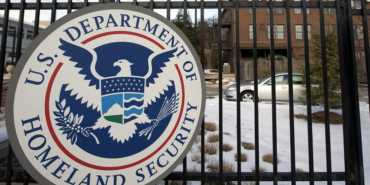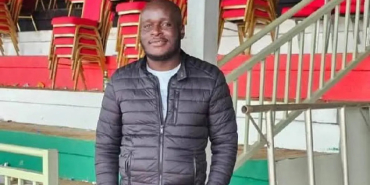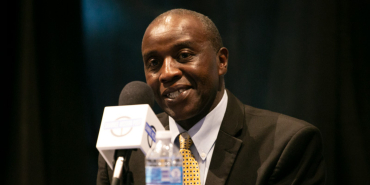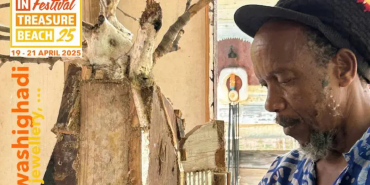Is Black Tax a Burden or a Blessing for Kenyans in Diaspora?

When you live in the West, there is a moment when you are suddenly reminded that this is not your home.
The experience of living in the West often presents reminders of cultural displacement for individuals from African nations. These moments of realization extend beyond the superficial aspects of being a minority in terms of ethnicity or language. While the financial disparity between Western and African economies is anticipated, it is the unforeseen cultural differences that truly resonate. One such moment of cultural dissonance arose during Kenyan author Ciku Mwaniki's leisurely excursion to London's Bond Street, a renowned shopping district frequented by the affluent. It was here, amidst the opulent boutiques and luxury goods, that the concept of "black tax" emerged as a point of contention.
Ciku encountered a desirable item within her financial reach, albeit at the cost of half her weekly earnings. Despite her willingness to forgo certain luxuries, she ultimately refrained from the purchase, recalling her obligation to provide financial support to her mother. This decision prompted an unexpected reaction from her white friend who suggested that such familial financial responsibilities, colloquially termed "black tax," are impeding Africa's economic progress relative to Western nations. The friend's assertion that Ciku's culture is unfair deeply offended her, particularly as she was unfamiliar with the concept at the time.
Intrigued by the term, Ciku later researched its meaning, discovering that "black tax" refers to the financial burden often shouldered by successful Black individuals in supporting their less financially secure family members. The notion of black tax is deeply rooted in the African philosophy of Ubuntu, which emphasizes communal interdependence. However, this practice can place significant financial strain on black professionals, particularly those who are first-generation college graduates or high earners. The obligation to support extended family members can impede personal wealth accumulation and financial growth, creating a disparity between black individuals and their peers from more individualistic cultures.
In less affluent communities, it is common for families to pool resources to support talented individuals in pursuing opportunities for success. This collective effort often begets a sense of reciprocal obligation in those who achieve financial stability, compelling them to assist struggling family members. While this practice can foster gratitude and strengthen familial bonds, it can also lead to financial strain and difficulty in establishing personal boundaries. While the concept can be viewed as a burden by some, particularly from a Western capitalist perspective, many Africans consider it an integral aspect of their cultural identity and social fabric.
Ciku asserts that, in her view, the concept of "black tax" is misunderstood. She emphasizes that supporting family members financially is not a burden, but rather a privilege. For Ciku, this practice represents an opportunity to reciprocate the support she received and to contribute to her family's well-being. She acknowledges that while she cannot speak for all Black individuals, her personal perspective frames this financial responsibility as an honour.














Comments
There is no " black tax"…
Permalink
There is no " black tax". There are differences in priorities and cultural values. What you term as " black tax", African societies refer to it as " black pride" - these are the results of cultural differences.
We must accept cultural differences and aspirations and not criticize what we do not understand.
We are all in the same space but moving towards different destination.
What one defines as " development" is under- development in other cultures and societies.
What in the past was defined as " civilising" the Africans, we found out, it was giving the African new gods, forcing them to change their names in the name of religion, stealing their land and resources and creating slaves out of them.
Different societies must be respected the way the are- with their cultural fabric because we are all going to different destinations and the fulfillment in life will de defined differently by each individual or community.
https://www.youtube.com…
Permalink
In reply to There is no " black tax"… by Anonymous (not verified)
https://www.youtube.com/watch?v=DzSW2_BUOEE
Iwoman in this clip was using skin bleaching which eventually destroyed her. In the video, she says that when she started using it,she was so beautiful like" a White Woman"... talk of inferiority complex. What people cause this?
Helping family members back…
Permalink
Helping family members back home is my pride. We have heard of people who migrated to the West many years ago and forgot their people back home. Some of them life did not go well for them and ended up being homeless or needed to relocate back to their country of origin. When they did that, they had no family or friends to welcome them. Helping back home is investing for myself in another way.
My dad helped all but one of…
Permalink
In reply to Helping family members back… by Onesmus Ochuonyo (not verified)
My dad helped all but one of his siblings as the eldest. Later, all but two of his family sided against him over property he paid for as a family investment. That split the family and I grew up without being particularly close to my cousins. It helped me and my siblings become more cohesive and also financially better off than my cousins to this day - probably because he focused his finances and attention on us. Due to that, we have never needed to ask each other for funds. As for the rest, I feel no urge to lift one finger to help anyone back home since I saw the asante ya punda reward from the front row. Help your parents but everyone else should be on a case by case basis. If you do, draw up a contract.
"What in the past was…
Permalink
"What in the past was defined as " civilising" the Africans, we found out, it was giving the African new gods, forcing them to change their names in the name of religion, stealing their land and resources and creating slaves out of them."
@ Anonymous, now we know better ,right? Can you please enumerate steps african have taken to correct this"problem". Because I still see africans praying to foreign gods,and calling themselves, Churchhill, Winterbottom, Elizabeth,Halima...What do we need to do?
@ Maxiley, The tide is…
Permalink
In reply to "What in the past was… by Maxiley (not verified)
@ Maxiley,
The tide is already turning. You may not see it but alot is changing to restore what has been lost. It took more than 400 years of destruction of the black man, by theft. Stripping him off his name, his language and his culture. This is slowly and surely being restored. As you can see in Kenya, it is a time for revelation. Alot that was hidden is being revealed. Full restoration will take place, when everything that has been done in darkness is brought to light.
No one needs to be told what to do. When they are awakened, there is no going back, it becomes a one way street.
You need to open both your physical eyes and spiritual eyes to see restoration taking place.
@anonymous I would agree…
Permalink
@anonymous I would agree with what you said. However when those back in the 254 start to expect the funds as a birthright, then all bets are off. Besides, many squander that cash on frivolous crap.
Add new comment